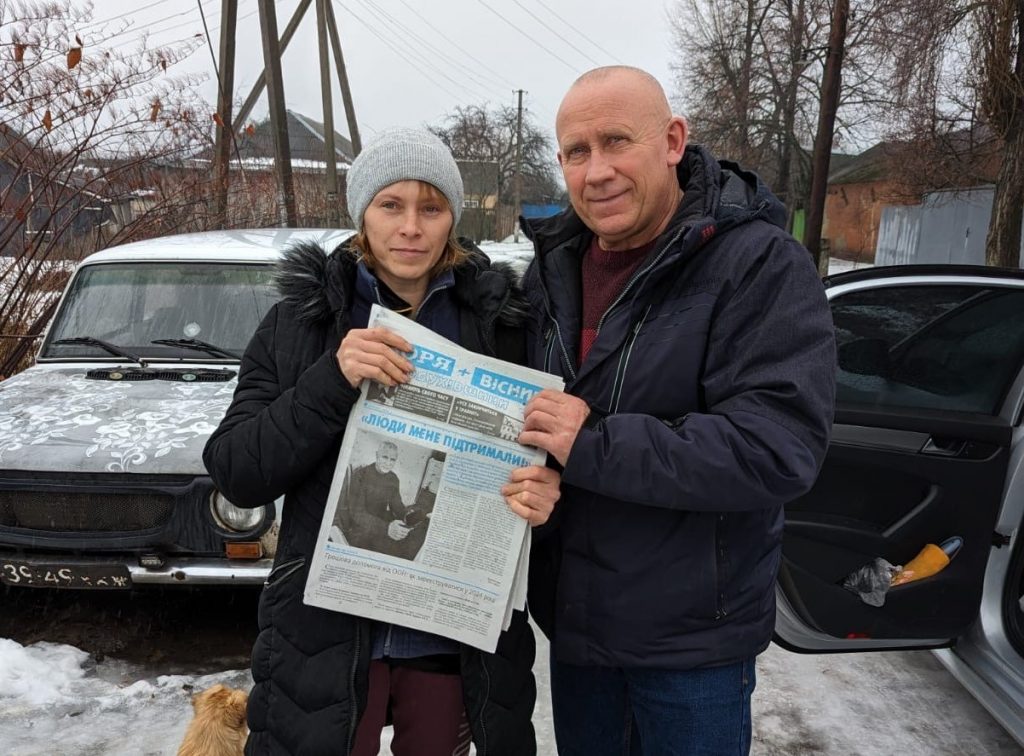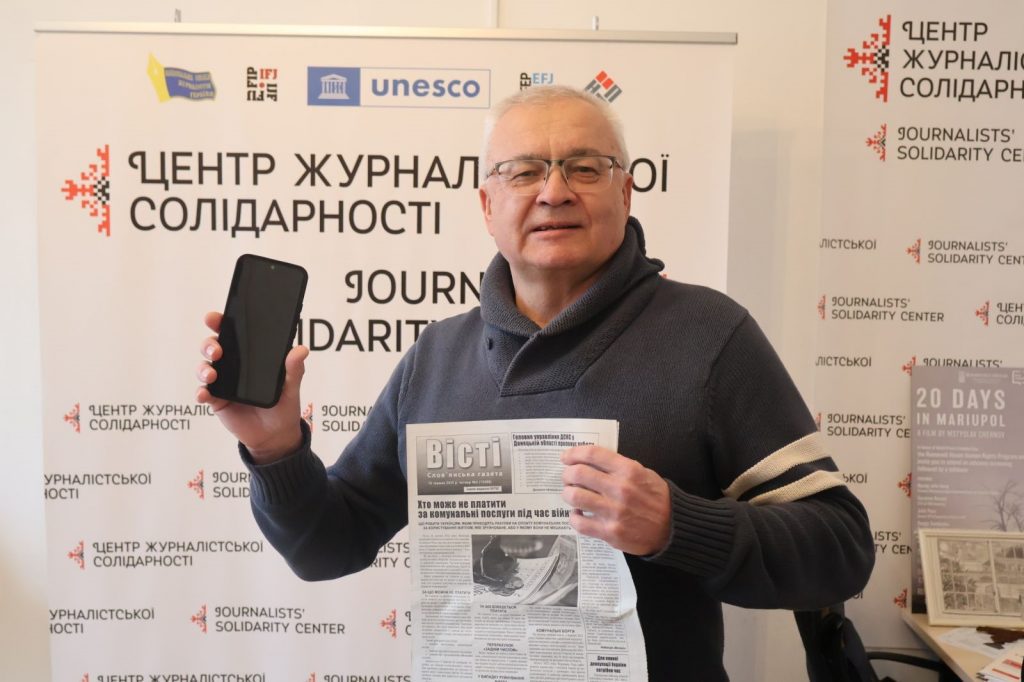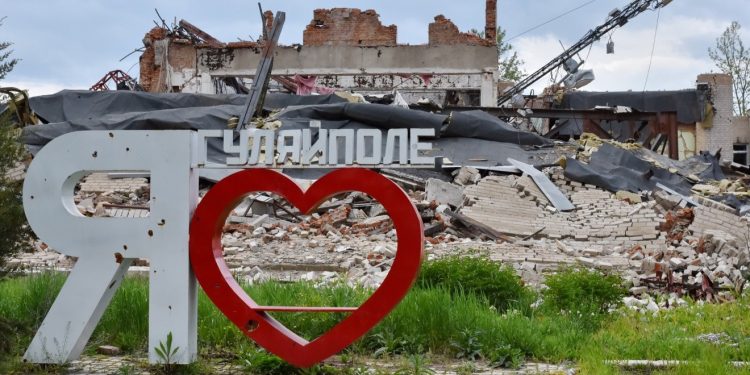“People in the front-line territories want to receive professional information: verified, processed, formatted into a readable text,” believes Tetiana Velyka, the editor-in-chief of the Holos Huliaipillia newspaper in the Zaporizhzhia Region. “The advantage of social networks is speed, and the advantage of the print media is thoroughness as behind the information of professional journalists is their reputation.”
The pilot project to support the local press in the front-line territories called Close To Zero Line is being implemented by the largest media association in Ukraine – the National Union of Journalists of Ukraine (NUJU) together with the international organization Free Press Unlimited, which, having an office in Amsterdam, takes care of press freedom in dozens of countries.
The project provides support for local newspapers that do not have stable funding but perform an important mission of informing the local population in the front-line areas, where the Internet and mobile communications are often absent or unstable.
Within the framework of the pilot project, five newspapers will receive three-month funding. They will be Holos Huliaipillia (Huliaipillia, Zaporizhzhia Region), Zoria (Zolochiv, Kharkiv Region), Putyvlski Vidomosti (Putyvl, Sumy Region), Vist (Chernihiv), and Ridne Misto (Myrnohrad, Donetsk Region).

The creative curator of the project is a member of the NUJU Board and Chief Producer of Gazeta.ua, Oleksandr Kharchenko. The best materials of publications participating in the project are published on the Gazeta.ua website and in the Krayina magazine. So far, Gazeta.ua has already published the article Holos Huliaipillia called Close-Up Shootings, Robberies And Children In Basements. Chronicles Of The Occupation In Zaporizhzhia (https://Gazeta.ua/articles/life/_rozstrili-vpritul-grabunki-ta-diti-u-pidvalah-hroniki-okupaciyi-na-zaporizhzhi/1172859).
“Articles in these publications are an example of high-quality journalism,” assures NUJU President Sergiy Tomilenko. “Journalists from front-line and de-occupied territories produce professional materials that meet all international standards at risk to their lives. Of course, these publications need support because they work, in fact, on the ruins of their newsrooms. Despite such conditions, their employees remain highly professional.”
In addition to financial assistance for the creation of content, the project provides technical assistance – the provision of smartphones to the newsrooms of eight more media: Pivdenna Zoria (Nikopol, Dnipropetrovsk Region), Visti Barvinkivshchyny (Barvinkove, Kharkiv Region), Dvorichanskyi Krai (Dvorichna, Kharkiv Region), Trudova Slava (Orikhiv, Zaporizhzhia Region), Visti (Sloviyansk, Donetsk Region), Obrii Iziumshchyny (Izium, Kharkiv Region), Zmiyivskyi Kuriyer (Zmiyiv, Kharkiv Region), and Technopolis (Kramatorsk, Donetsk Region).

The importance of supporting local publications in the front-line and de-occupied territories was discussed during a meeting that took place in Amsterdam last year in October between the NUJU President Sergiy Tomilenko and the executive director of Free Press Unlimited, Ruth Kronenburg.
“When a city or region is occupied, the need for independent journalism is key. Therefore, these front-line newspapers deserve our support,” says Ruth Kronenburg.

Since the first days of the full-scale Russian invasion in 2022, Free Press Unlimited opened a large-scale program of emergency support for Ukrainian journalists in need. In particular, at the request of the NUJU in the spring of 2022, it provided financial assistance to more than 150 journalists from Mariupol, Kharkiv Region, Kherson Region, Chernihiv Region, Kyiv Region, Zaporizhzhia and other regions.
Free Press Unlimited cooperates with more than 300 partners, implementing media projects in more than 50 countries of the world.
NUJU Information Service

 THE NATIONAL UNION OF
JOURNALISTS OF UKRAINE
THE NATIONAL UNION OF
JOURNALISTS OF UKRAINE
















Discussion about this post